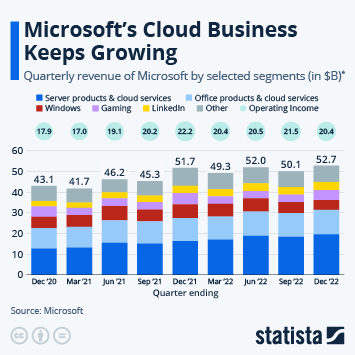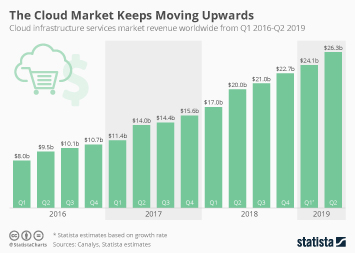The cloud services business has been lucrative for some time. Microsoft and Amazon alone each generated around $80 billion in calendar year 2022 with products such as Azure and Amazon Web Services (AWS). Although Google's cloud division was partly responsible for the company's success in the past quarter and was in the black for the second time in a row, according to media reports, CEO Sundar Pinchai's company wasn't able to match the revenues of Microsoft and Amazon in this sub-segment last year.
Between January and December 2022, Google parent Alphabet was only able to record around $26 billion in revenue with its cloud products, which include not only the Google Cloud Platform itself, but also the Google Workspace productivity package. Alibaba Cloud came fourth with around $12 billion in revenue last year.
The lack of transparency within the individual sub-segments makes it difficult to directly compare the success of the different platforms. While Alphabet counts its own end-consumer product Google Workspace as part of total cloud revenue, the picture is even more blurred for Microsoft's Intelligent Cloud. In addition to the Azure hosting offering, revenues from SQL servers, GitHub and enterprise services are also included here, for example. Although Amazon acts opaquely elsewhere and separates business units poorly, the revenue from AWS is exclusively related to cloud hosting. For this reason, Jeff Bezos' company is likely to lead the market in this sub-segment by a significant margin.
Another indication of this is a document that has surfaced in the course of the legal dispute between the U.S. Federal Trade Commission (FTC) and Microsoft regarding the purchase of Activision Blizzard, which precisely quantifies the revenue from Azure for the fiscal year 2022. According to the document, Microsoft's cloud-hosting platform had generated around $34 billion in revenue between July 2021 and June 2022 - significantly less than Amazon had generated with AWS in calendar year 2022.





















